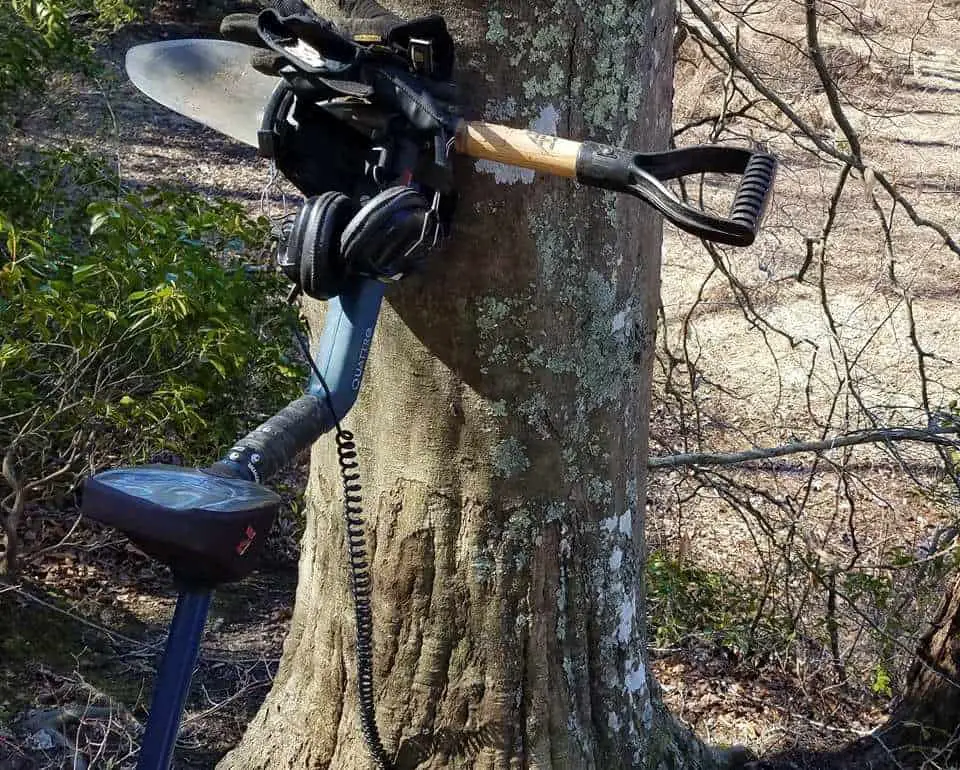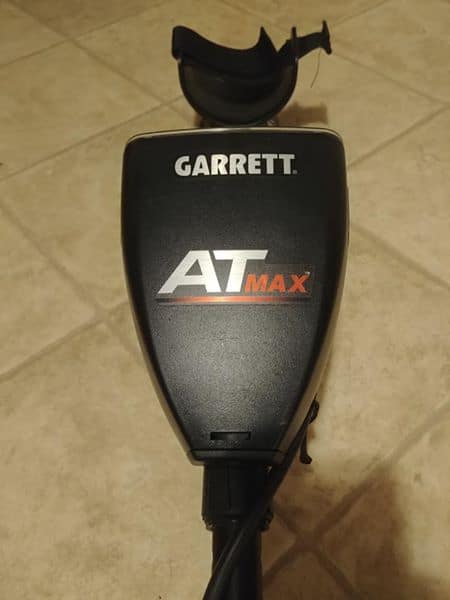
Iowa is another lovely state where not only you can use your metal detector peacefully, but also hope for some valuable finds!
The only point you should pay serious attention to before swinging your beloved machine there is the regulating laws …
… In fact, in this Post, I list what you generally need to be aware of in terms of regulating rules, in addition to other subjects like …
- Some good locations that you can explore
- A Detection Suggestion for Iowa type of Soil
- Possibilities to come up with Gold
- Most common Finds
- Which clubs should you aim for
In addition to some helpful info …
What are the metal detecting laws in Iowa?
The laws in Iowa are, for the most part, similar to other US states! The first law concerned with detection activities is the Archeological Resources Preservation Act (ARPA)!
Like in most US states, ARPA prohibits digging up any site deemed historically crucial in Iowa. Another law, the National Historic Preservation Act, is similar in nature. It basically means that any digging, especially on state lands, is essentially a criminal offense.
So on most state lands, you would require a permit before you can dig up anything. In the state and national parks, this is all the more important and very hard to obtain.
Lakes in Iowa, however, are an exception! Indeed, under specified timings, collectors can go hunting with their detectors on the beaches in there.
This applies for both alive and dried up. However, it is necessary to follow the code of ethics as laid out by Iowa authorities.
Some of these provisions include using probes and sand scoops of specific sizes, restoration of the dug area before leaving, carrying a pouch to collect all litter, etc. If you are simply looking for your lost personal item, you might have to inform authorities before using your detection machine.
Where to go detecting in Iowa?
This state, being first of the earliest lands to be settled in the USA, obviously has a rich history of treasures to be found! While Native American artifacts are abundant (the natives are said to inhabit the land for about 13,000 years), there is no shortage of modern historical artifacts either.
To find the best spots to explore, we need to turn towards folklore and myths. For instance, it is said that beneath the caved near Bellevue, Mississippi river pirates used to bury their loots.
In Buffalo, lore says that the loot of a huge train robbery was buried alongside the railroads. Similar lore is heard about Council Bluffs, Dallas County, Cerro Gordo County, and Eddyville.
While it is quite probable that these might be just tales, but there is also a slim chance of them being correct. As such, these places attract a lot of hunters every year.
Apart from that, the usual locations that you should opt for stand right for Iowa too. Old monuments like churches and schools have high chances of buried treasure in their vicinity.
Farmlands also often contain many unlikely treasures, though they often come under private property. If you decide to go detecting on private land, always take permission before starting your trip.
A Good Detector Recommendation for Iowa Soil!

The black soil of Iowa is known for its fertility. But what is good news for farmers might not be good for collectors. High fertility is often associated with equally high mineralization of soil.
High mineralization means that there is a high amount of minerals in the soil. Many of these minerals tend to be metallic, which can interfere with the detecting capabilities of your device.
Fortunately, the leading cause of trouble, iron oxide, is low in Iowa soil. This means that if your device is attuned to finding iron, traces of iron oxide will not bother you. Also, the soil is pretty soft and mellow in most areas. However, the area near lakes and rivers would be full of pebbles and gravels.
The Garrett AT Max (Check it Here at Amazon) is an excellent choice! The primary reason is that the device is water-proof and could go pretty deep!
This is important in Iowa since most of the lucrative sites are near lakes or rivers and could be found quite deep underneath the ground!
As such, you would need a device that doesn’t get damaged with a splash of water!
Otherwise, if this machine is above your budget capability, then you may want to Check this Cheaper Model Here at Amazon! It is a Fisher version that I personally appreciate.
Looking for Gold in Iowa
The state is mainly said to consist of glacial gold. In simple terms, the glaciers that cover the state originally came from Canada and brought gold in the form of gravel along with them.
The amount of gold in these glaciers was little (and frozen), so it never attracted commercial applications. The first reported incident of finding gold in there date back to 1853 in Hardin County, but it was soon realized that the returns are not profitable enough. Soon the project was abandoned.
However, for an individual enthusiast, the returns could be well worth it. You must keep in mind that unlike many other states, you would not find gold nuggets here. The fine flour gold of these glaciers requires very sensitive metal detectors attuned to finding gold. But if you have it, you are all set to strike gold.
Most of this glacial gold can be found near the rivers. Some important places to look around would be South Skunk river (near Jasper count), Volga River (along with its tributaries) and Turkey river.
There was also a small gold mine once located near Big Sioux River, so it is also worth checking out. From time to time, gold detectors tell about stories of finding small treasures in the area, so you can bet the endeavor has good hopes of being a success.
To wrap up this paragraph I invite you to check these Tips to Detect Gold! You will learn a ton of helpful info.
What other finds should you expect there?
Apart from gold, there are many other things to be found in there! As mentioned before, Iowa used to be a primary settlement of Native Americans, so naturally a huge amount of Native American artifacts is buried in the state.
Unfortunately, the natives didn’t use metal, so most of these items would be invisible to your beloved detector. However, after the advent of Europeans, the native tribes got access to metals and started using it extensively.
Thus, there is a good chance of stumbling upon a Native American metal artifact from the past 300 years.
But your list would not remain limited to this alone. Since the European settlement, a variety of metallic items would have been buried under the ground; things which would now be considered historical relics.
From coins and insignia to watches and monocles, there is no telling what you might stumble upon. Historical sites are obviously a great spot to search for it.
Farmlands, being relatively untouched over the years, might also boast of old treasures however, if you are willing to hunt for more modern stuff than it is a different ball game. At places that see a large number of tourists, you can find a lot of items long forgotten by their original owners.
Detecting in Iowa Lakes and Rivers!
Without a doubt, lakes and rivers are the best sites to look for treasures in Iowa. In fact, it boasts of several great rivers, and they are known to carry rich bounty over their course.
Gold flour is one of the primary attractions you might find around these rivers. Most collectors prefer staying near the places where the rivers get slow and look for gold particles. There is a high chance of finding some gold flour after all.
Lakes in there offer a different kind of treasure. While the big lakes are too large to allow any significant metal detecting, the smaller ones offer some great opportunities.
Black Hawk, East, and West Okobji and Manawa are few of the popular lakes. These lakes often hide a lot of personal items that tourists have thrown in them over the years, either willingly or accidentally. Sometimes, these items might turn out to be amazing historical relics.
Hunting around the lakes and rivers in Iowa is allowed, so you don’t have to worry about breaking any rules. However, like always, there are specific guidelines to be followed as a responsible metal detector.
Also, pay special attention to the safety of your equipment. It is effortless to get them damaged when you are around water unless you use these waterproof equipment!
Are there detection clubs in there?
In all honesty, Iowa doesn’t have a lot of detection clubs!
Most hobbyists in there usually go solo on their adventures. Even the ones that exist are prone to lack punctuality and regular activities.
The most prominent clubs are located in Marion, Sioux City, and Davenport! If you only want to focus on gold prospects, the Iowa chapter of GPAA in Marshalltown might interest you.
These clubs hold regular meetings and organize trips to go treasure hunting together. Having an experienced group with you makes the whole journey more fruitful, without a doubt…
… It also saves you from the hassle of understanding all the individual regulations on your own.
Detecting in Iowa Parks!
Under ARPA, state and national parks consider any kind of digging as a crime! However, park officials are known to give permits for metal detecting under the premises if you make your case well.
It is preferable to choose isolated spots, far away from any flora or fauna. Furthermore, intentionally select dates when the park is closed for the general public. This would indicate your intention to cause minimal disturbance.
Remember, any attempt to go using your machine without a permit is a crime and get your arrested. Do not take that risk under any circumstance.
Getting your detecting permit
Getting a permit in there is not as strict as some other states! The locations of prime importance, like rivers and lakes, don’t need a permit.
Within state parks, the same rules as other states follow. You would need to write to them and hope that they concede to your request.
If you are going for private lands, you would need to seek written permission from the property owners.
State laws do not apply to individual properties. Witching towns and villages, local authorities issue permit instead of state officials.
Conclusion
I am not claiming in this article that I am providing all what you should know about the hobby in this state … But, I’ve done what I could to provide you with accurate information that you can rely on to be able to detect in Iowa without issues and with the most success possible!
I won’t deny that I always wanted to encourage you as much as possible to explore new places … This is what will make you experience the real joy that comes with the hobby.
Finally, if you are looking for other states to explore, then I invite you to have a look at this metal detection guide in Utah!
